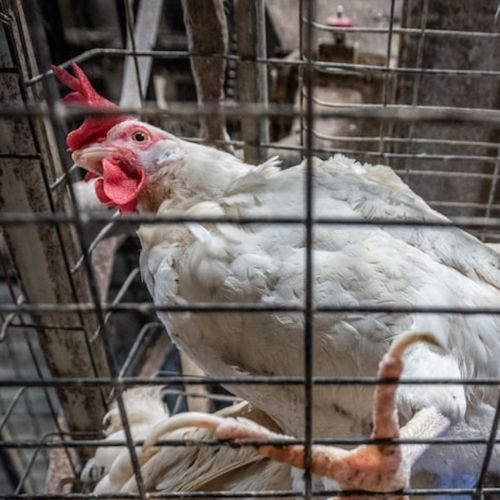Speciesism and the Struggle with Sentience
Aug 16, 2022 · 2 mins read
0
Share

Are you struggling to disconnect the bacon on your plate from the pig in the pen lately?
Does learning about factory farmed eggs turn you off your omelette?
Repulsed at the thought of an animal abattoir?
You might be suddenly and keenly aware of speciesism.
Save
Share
Speciesism is a word that is hard to pronounce but easy to understand. Akin to racism, sexism, and other isms, it describes a certain kind of discrimination. In this case, its against animals, based solely on their species, and the belief that animals are inherently inferior.
Save
Share
Discrimination occurs when animals are subjected to unjustified and inexcusable cruelty. Modern breeding and livestock farming methods are far from empathetic towards animals pre-slaughter. Animals are stripped of their rights and slaughter is the ultimate show of speciesism.
Save
Share
Last year the EU passed Article 13 on the Treaty of the Functioning of the EU which recognises animals as sentient for the welfare and protection of farmed species. There are currently no US federal legal recognitions for animals sentience.
Save
Share
What is sentience? The philosophy revolves around immoral treatment of animals, their levels of awareness and ability to feel pain. Dogs whimper when kicked, a cat will run from abuse and livestock or farmed animals are no different, feeling pain and experiencing trauma.
Save
Share
Why is this idea so difficult to process? People say they are animals lovers, but happily chow down on chicken wings. They keep animals as pets and would never eat a cat. And yet:
Factory farmed chickens are imprisoned in cages and force fed for 42 days before slaughter.
Save
Share
A chicken can live for several years in the wild.
Rats, mice, and rabbits are bred purely to be test subjects.
Beagles, because of their docile nature, are used to test cosmetics and breathe dangerous chemicals.
Mink, foxes and rabbits are still being bred just for fur.
Save
Share
Why do we eat meat? Tradition, habit, and the meat industries effect on the economy are some reasons. Speciesism is another. Research shows many sustainable and far less cruel ways to get protein which may have positive and beneficial health results in return.
Save
Share
If you think this is an invented issue for society to get upset about, think again. Ireland first passed animal rights legislation in 1635 to outlaw the cruel practise of pulling wool from a sheep. Buddhist, Sikh, Hindu, and Hare Krishna religions all respect animals' sentience.
Save
Share
When it comes to speciesism, the growing number of people turning their backs on the meat industry and embracing plant-based diets agree there is no OK amount of animal cruelty.
Respecting animal sentience means regarding the life of a fish, dog or pig as equal to our own.
Save
Share
0